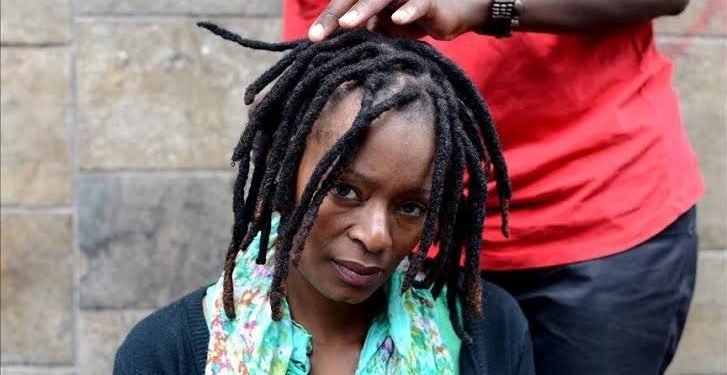Disturbing crime has been reported for years in Kenya, with people’s cherished locks stolen in brazen ways
– Driving factors include increasing popularity of dreadlocks fueling demand for ‘instant locks’ and black market where they fetch exorbitant prices
NAIROBI, Kenya
Ras Catherine Wambui was on a bus in Nairobi earlier this year when she dozed off for a bit.
When she woke up, the 29-year-old realized she had fallen prey to a unique type of crime seen time and again in the Kenyan capital: the theft of dreadlocks.
Someone had cut off a sizeable portion of the waist-length hair she had spent years patiently cultivating.
“I felt like a part of me was ripped away,” Wambui, a mother of one who lives in Nairobi’s Majengo area, told Anadolu.
“It wasn’t just my hair; they stole my identity, my history. The pain really cuts deep.”
Wambui is just one of many people who have experienced this in Nairobi over recent years, with tales abounding of men and women targeted on buses, streets and markets, often in broad daylight.
The roots of this unsettling trend are complex and intertwined.
One key factor is the increasing popularity of dreadlocks among the youth, fueled by celebrities frequently sporting the look.
Dreadlocks usually take several years to grow, so the demand for “instant locks” has fueled a black market where stolen hair can fetch significant amounts.
“There is definitely a vanity aspect. People see celebrities rocking these perfect locks and they want the same look, but without the years of care and nurturing that goes into it,” John Mwangi, a veteran hairstylist specializing in dreadlocks, told Anadolu.
“What they do instead is pay a lot of money for these stolen locks and bring them to stylists, who basically use them to make extensions, or instant locks, that give the same look.”
For those committing the crime and selling the locks, it is all about money.
There have been dozens of arrests and various investigations in Nairobi over the past decade, most of them showing the perpetrators were people from poor backgrounds, lured by the promise of quick financial gain.
“A client recently told me she was offered $300 for her seven-inch dreadlocks,” Steve Kumari, a hair salon owner, told Anadolu.
“So, clearly, there’s a lot of money in this, especially for someone struggling to make ends meet.”
‘An assault on our faith’
Among the victims of these crimes in Kenya have been a large number of followers of Rastafarianism, which has been recognized as a religion in court rulings in the country.
Dreadlocks hold spiritual significance for Rastafarians, so the theft is not just a violation of personal property for them, but also as a form of sacrilege.
David Otieno, 42, an adherent of the faith living in a small Rastafarian enclave in Majengo, explained that dreadlocks are “a manifestation of their faith and reverence for Jah,” the term the community uses for God.
“Dreadlocks are an extension of our being and cutting them off is like desecrating our souls. It’s an assault on our faith,” he said.
Dr. Susan Gitau, a psychologist in Nairobi, explained that losing dreadlocks in such a violent manner leads to post-traumatic stress disorder and self-esteem issues among victims.
“Dreadlocks are often woven into one’s sense of self,” she said.
“That’s why losing them, particularly in such a non-consensual way, can be deeply disorienting. I’ve seen it trigger feelings of vulnerability and even shame.”
Community initiatives take root
Over the past years, police in Nairobi have managed to make some arrests in cases of dreadlock theft, but the problem remains a recurring one as authorities struggle to root out the peculiar crime.
Officials say a major hurdle is the “opportunistic nature” of the crime, which means it is not necessarily an organized endeavor and many of the perpetrators are individuals looking to make a quick buck.
But those affected are making efforts on their own, putting together community initiatives such as self-defense classes and awareness campaigns.
Salons have also joined in, with some implementing heightened security measures such as encrypting their client databases.
Amina Dhaashi, a Rastafarian sister who had her locks stolen in Nairobi, emphasized the need for such projects, explaining that healing from such experiences is “a long and arduous journey.”
“It’s going to take time, but I won’t let this break me,” she told Anadolu.
“My hair will grow back and my spirit will too. We will not let our identity be stolen.”






